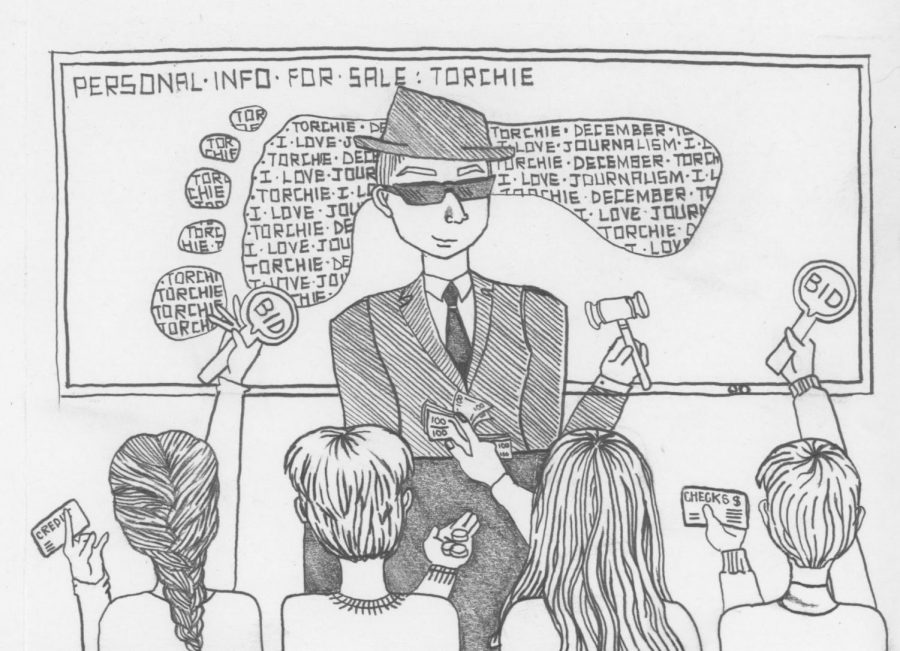Editorial: Control your digital footprint
In this illustration, a digital footprint is being auctioned to show how companies can take advantage of your data when you use social media and the internet.
Take a look in the mirror. Notice your hair color, eye color and height.
What if we told you that someone on the other side of the globe was looking at you, too? Not just observing your physical attributes, but also using your social media content and personal information.
In recent years, we have transitioned from one social media trend to another. As we delete posts and apps or move on to follow more recent trends, our data is not buried. In reality, we leave behind a trail of data that perpetually grows into a digital clone of ourselves.
Brian Dickerson, president and general manager of USMe Doing Business As BLH Computers, said in a phone interview that this data can be sold to other entities around the world.
Although it may be exhilarating to join in on the newest TikTok trend or alter the appearance of our faces with FaceApp, most of us don’t recognize the seriousness of what is happening beneath the surface of seemingly innocent fun. Every picture and video posted resides on a server as data, which is another piece of our identity attainable by unwanted viewers.
“[Facebook photos] actually don’t reside on anything you control,” said Dickerson. “They actually reside on Facebook servers. Facebook actually owns those. There have been a few cases where Facebook has … the rights to those photos for advertising campaigns. You end up being the face of this product and you had no idea.
“You don’t control it.”
This same concept applies to many other social media platforms. Although we may already realize a Snapchat or Instagram post is not gone forever after opened or deleted, we don’t recognize the seriousness of this matter.
According to Dickerson, browsing history is one of the most valuable types of data. When we use the internet, we broadcast cookies, which are pieces of data recording our browsing history. This is often the cause for sudden advertisements that mirror recently searched products.
Social media still has its benefits like connecting friends and family and providing information on current events. We do not have to cease all use of the internet or social media, but rather change the way we use it.
When you are on the internet, try switching to private mode to reduce your cookies. Exercise caution with whom you are allowing to view and access your social media accounts.
We must train our minds to think twice before uploading something about ourselves. When we use the internet, leaving behind a digital footprint is inevitable, so it’s our own responsibility to monitor what that footprint includes. Before you hit post or send, all it takes is a second look at your content.
Ask yourself: is this really something you want being viewed without your discretion? Because once your data enters the realm of social media, you lose all control of it.


